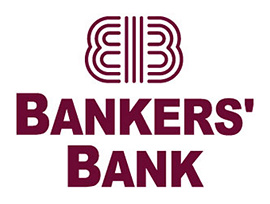Morgan Stanley’s Formula for Success: AI + Human Intuition = Differentiated Insights
Instead of simply turning to automation, Morgan Stanley Wealth Management’s Chief Analytics & Data Officer makes the case for augmented decision making.
Learn More
instead of 2 business days
in time spent
Organizations face a myriad of challenges when it comes to analytics efficiency, including but not limited to unlabeled data, poorly labeled data, inconsistent or disorganized data, an inundation of data sources, a lack of tools to properly address data quality concerns, and process bottlenecks. This sentiment, exacerbated by the sheer volume of data generated and maintained by financial institutions, only becomes more problematic for organizations with multiple business units desiring to be more data driven — especially without a centralized repository for analytics efforts.
Banker’s Bank successfully transformed their organization by automating processes for gathering and ingesting data, simplifying the end-to-end analytics process, and increasing the rate at which their business can make data-driven decisions.
As a result of their business model, Bankers’ Bank manages massive amounts of disparate data from various sources (structured and unstructured), including:
The vast amounts of data they have collected and stored over time, coupled with the copious amounts of data produced in the financial industry, meant that Bankers’ Bank faced a tremendous opportunity to reimagine the potential data solutions around combining historically siloed datasets.
Bankers’ Bank worked closely with Snow Fox Data to find Dataiku. Snow Fox Data is a data science and analytics consulting organization that leverages Dataiku for its end-to-end analytical capabilities and collaboration-driven features.
Today, Bankers’ Bank uses Dataiku for reporting and dashboards that had previously been compiled in Excel. Given that Bankers’ Bank’s Board of Directors uses this data for critical business decisions and financial reporting, Dataiku gives them the visibility and governance needed to ensure that the data is correct, reliable, and repeatable.
Upon using Dataiku, Bankers’ Bank has been able to:
One example of their success is around an analysis that tracks how effective each cross-sell was (i.e., is the sales team selling the right products?). Originally, the report was created quarterly and took 16 hours every quarter to prepare, for an annual total of 64 hours spent.
With Dataiku, the time spent on validation went down significantly and the report is delivered in a predictable, consistent, and accurate manner and will soon be delivered on a monthly cadence — something that could not have been imagined given the previous work effort. The savings translates to an actual time reduction of 87% (it now only takes 30 minutes to prepare!). Analysts can now use that extra time to work on other, more high-value projects.
Additionally, having the report on a monthly basis instead of quarterly will provide a tool for the sales team to be more accountable, as their success will be more transparent and they can more easily fine tune their sales sequence. The team also does transactional reporting on the different volumes of transactions they process, which was previously very manual. Data was pulled in from various sources (including a CRM) and validation included extensive backtracking to pinpoint where any errors occurred without visibility to the entire data flow, which was — at times — like finding a needle in a haystack.
Now, the team has been able to reduce time associated with pulling that data while simultaneously improving the data quality and reliability. They no longer have to do everything manually, which helps increase trust in the reports and their insights. Without having to re-prep certain elements of the data each month, the team has been able to save time on low-value, repeat tasks while infusing reliability, traceability, and versioning across their reporting processes.
It’s been a pleasure to watch Bankers’ Bank move along on their journey from MVP to making great strides toward becoming a data-driven organization in less than one year. The change management around establishing a data culture is critical.Virginia Maus Customer Success Manager at Snow Fox Data
In 2020, Bankers’ Bank was focused on making a valid business case that broader data and analytics are valuable to the enterprise. Now, they are focused on making more processes repeatable, continuing to have one source of truth for data projects, improving the data available to their sales team, and cutting down on spreadsheet-onerous projects.
They are in the midst of exploring Dataiku for a recommendation engine and look forward to using Dataiku for modeling. They are excited to leverage their unique value to integrate isolated data sources with data science into a robust solution to create new business opportunities and further differentiation in their market and in service to their customers.
This year, we are expanding beyond our 2020 focus of exploring the better management and use of data to support internal initiatives for the success of the divisions to how to use data at scale to make the bank solutions set offerings more successful and valuable for our customers. Formal processes and linking the data sources in Dataiku will help us do that.Barbara Gross SVP/CIO at Bankers’ Bank
Learn how RBC's Internal Audit team leveraged Dataiku's platform to improve processes and audit Control Tests.
Read moreInstead of simply turning to automation, Morgan Stanley Wealth Management’s Chief Analytics & Data Officer makes the case for augmented decision making.
Learn MoreFrom data management and preparation to collaboration and model creation, Dataiku helps BNP increase speed of delivery and overall efficiency.
Learn MoreAcross all areas of the bank, Standard Chartered is accelerating the development of AI solutions, creating a culture of decision making driven by analytics and unlocking the value of data to power better business outcomes.
Learn MoreThe value added by process mining has been significant for both analysts and auditors. On the analyst side the greatest benefit has been in terms of time saved — cutting their time spent by about 50%; whereas for the auditors it has been in terms of the quality of the output.
Learn More